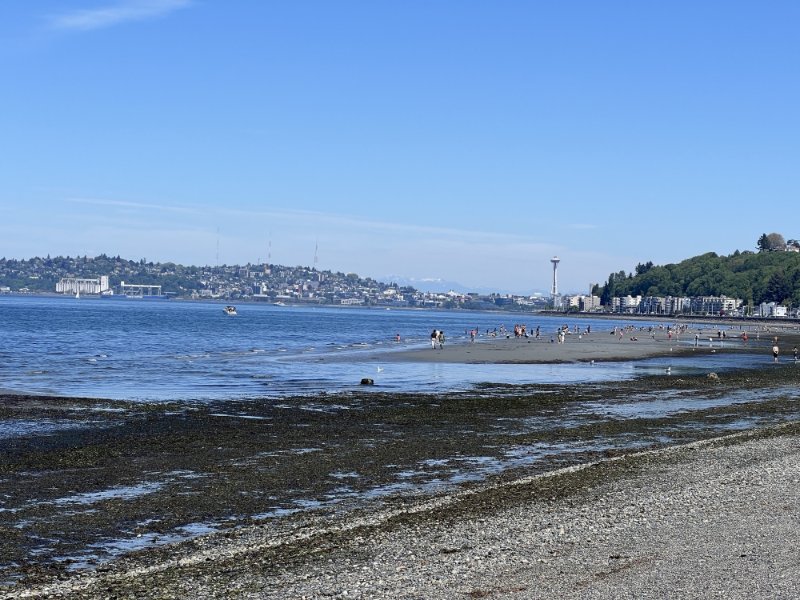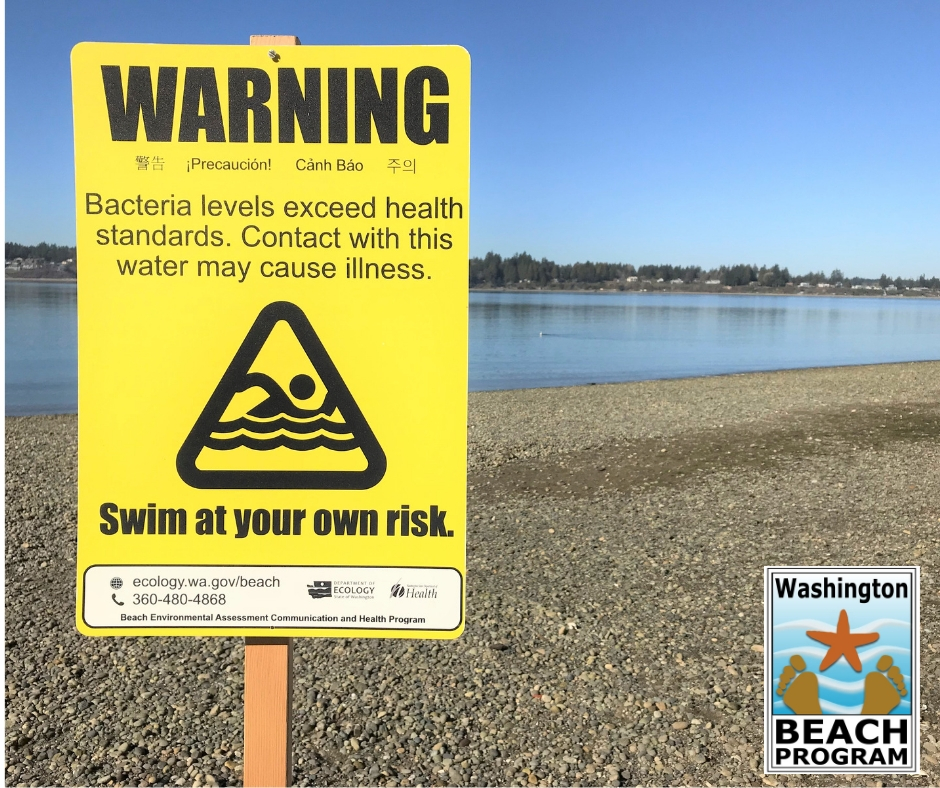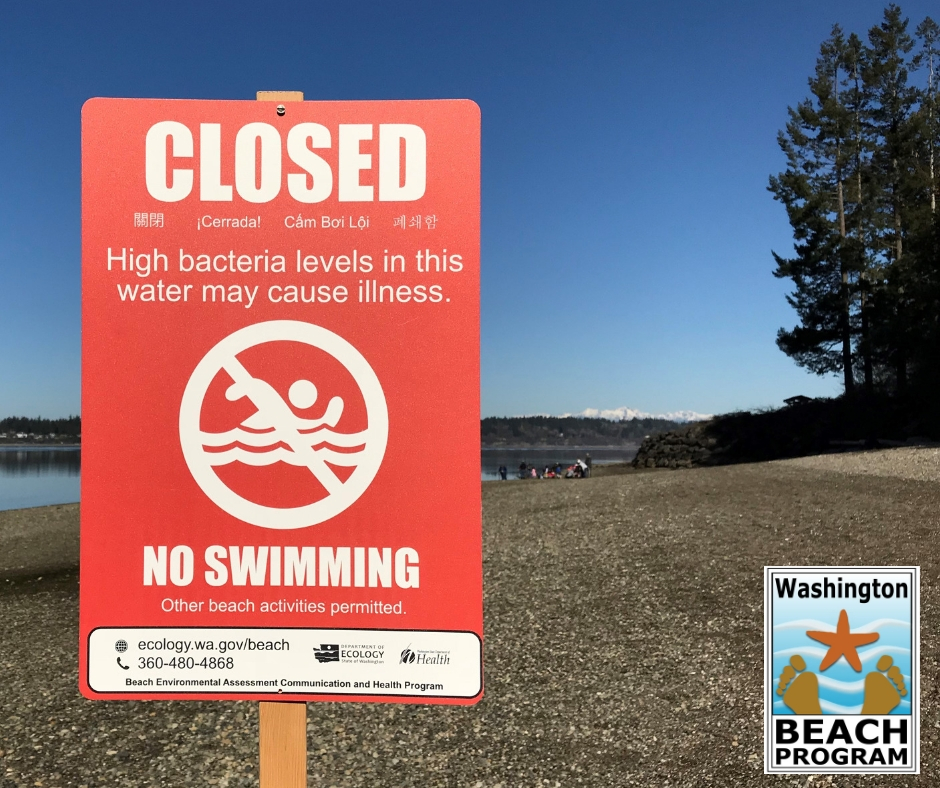
We’re approaching warmer and sunnier days. Many of us look forward to this weather so we can enjoy a day at our favorite beach. Meanwhile, our scientists look forward to wading into Puget Sound to collect water samples. What are they looking for? Fecal bacteria that can make people sick.
Whether you are splashing, swimming, kayaking, beachcombing, or exploring tidepools, we want you to have a safe time at the beach this summer!
Before you head out to a beach in Puget Sound, please check our safe swimming map. This map shows the status of all the beaches we are monitoring in 2024 for fecal bacteria. We will update the map regularly from late May to early September.
Testing for fecal (poop) bacteria
We test the water at popular marine beaches and beaches that are at high-risk for contamination. High-risk beaches are close to outflows, marinas, or sewage treatment plants. Most of the 52 beaches we are monitoring this year will be sampled weekly.
You might see our scientists and volunteers collecting water samples at a local beach. The water samples we collect are sent to a laboratory where they are tested for fecal bacteria, called “enterococci,” that are found in human and animal feces (poop).
Fecal bacteria are a natural part of the environment; however, high levels can make people sick, causing vomiting, diarrhea, skin rashes, ear infections, and fever.
How does poop or bacteria from poop end up in the water? Poop can get into the water from different sources including people and toddlers (leaky diapers or a diarrhea incident in the water), pets, birds or other wildlife, sewage spills or septic leaks, and runoff from rivers and streams.
Tips to recreate safely
A yellow caution sign informs people that contact with water may cause illness.
If a beach has high levels of fecal bacteria, we work with local health districts to alert everyone to advisories or closures. In case of a sewage spill, beaches that are affected are closed with a sign posted to warn people not to swim.
Our partners post yellow warning or red beach closure signs, so look for them before you play in the water. When you see one of these signs, avoid swimming in the water or playing in the sand.
Know before you go. View our safe swimming map to check if a popular beach is open for swimming and recreation. A red sign informs the public that a beach is closed for swimming.
Even when a beach is open for public swimming, there are steps you can take to make sure you and your family reduce the risk of illness:
- Do not swallow beach water
- Do not swim near a pipe or stream flowing into the water
- Shower after swimming or spending time at a beach
- Wash your hands before eating food
If you get sick from swimming in contaminated waters, see your physician and contact us or your county public health department to report which beach may have caused your illness.
Help keep poop out of the water
Join us in keeping Washington’s beaches clean and poop free. There are simple ways to keep poop out of the water:
- Use bathrooms and swim diapers — Give children frequent bathroom breaks, and put younger children in swim diapers.
- Scoop the poop — Pick up your dog’s poop, bag it, and throw it in the trash.
- Don’t feed wildlife — Feeding the birds and other wildlife can be fun, but it encourages them to stick around, ultimately bringing more poop to the beach.
- Don’t swim sick — Avoid swimming if you’re not feeling well, especially if you have diarrhea.
- Pack out trash — Pack your trash in a bag, and throw it away in the trash at the beach or at home.
Track beach advisories this summer
Our beach sampling season is underway until early September, 2024. View current swimming advisories or sign-up for our email list to receive updates. We also post information about advisories and closures on social media, follow us on Facebook for beach status updates.
Visit our website to contact us and learn more about our beach monitoring program.



